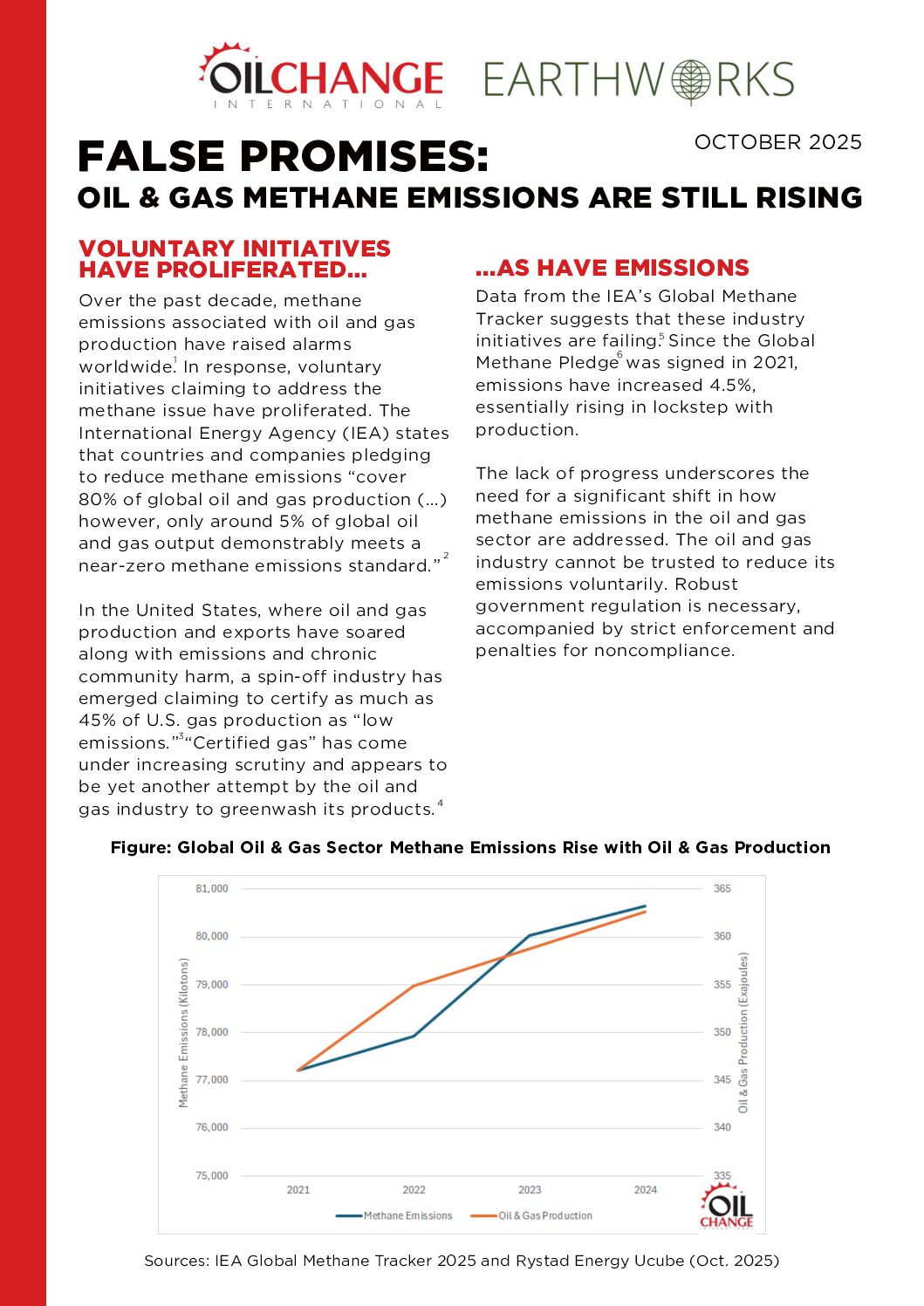
False Promises: Oil and Gas Methane Emissions Are Still Rising
Data from the lEA’s Global Methane Tracker suggests that the fossil fuel industry’s voluntary initiatives to reduce methane emissions are failing. Since the Global Methane Pledge was signed in 2021, emissions have increased 4.5%, essentially rising in lockstep with production.
Over the past decade, methane emissions associated with oil and gas production have raised alarms worldwide. In response, voluntary initiatives claiming to address the methane issue have proliferated. The “False Promises: Oil and Gas Methane Emissions Are Still Rising” factsheet shows that these initiatives are failing to reduce emissions of the climate pollutant methane. Emissions have increased 4.5%, essentially rising in lockstep with production, since the Global Methane Pledge was signed in 2021, according to data from the International Energy Agency’s Global Methane Tracker.
The lack of progress underscores the need for a significant shift in how methane emissions in the oil and gas sector are addressed. The oil and gas industry cannot be trusted to reduce its emissions voluntarily. Robust government regulation is necessary, accompanied by strict enforcement and penalties for noncompliance.
Recommendations:
Voluntary initiatives to reduce methane emissions in the oil and gas sector are failing. The U.S., the world’s largest gas producer and exporter, effectively lacks a reliable regulatory regime to control emissions. European regulators must enforce the EU Methane Regulation on all fossil fuels, including imports. All fossil fuel-producing countries should enact emissions regulations that include:
- Clear definitions and robust enforcement.
- Public transparency of monitoring data.
- A suite of monitoring technologies rather than overreliance on one or two.
- A clear plan for fair, fast, and funded fossil fuel phaseout.
